Thinking About Dental Surgery - Here's What You Need to Know First
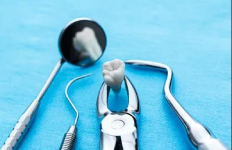
Surgical procedures pertaining to the oral cavity might sound intimidating for many, though for some, it's a regular part of dental or oral life. These procedures include removing troublesome teeth, placing implants, and others, all of which can be either therapeutic or preventive. Suppose you are about to undergo dental surgery or simply want to know what happens during so-called "dental" surgery. In that case, this guide aims to clarify everything in plain language, avoiding technical or medical jargon.
What is Dental Surgery
Dental surgery refers to any medical procedure performed on the teeth, gums, jawbone, or other areas inside the mouth. Some dental surgeries are minor and can be carried out in a clinic using local anaesthetic. Others may be more involved, requiring sedation or general anaesthesia in a hospital setting.
The purpose of dental surgery can be to treat infection, remove damaged teeth, correct structural issues, or replace missing teeth. Some surgeries are also done for cosmetic reasons, but most are necessary to restore proper function and prevent serious dental problems. Dental surgery can significantly improve a person's comfort, eating ability, and overall oral health.
Common Types of Dental Surgery
There are several different types of dental surgery. Each one serves a specific purpose, and your dentist or oral surgeon will recommend the best procedure for your condition. Some of the most common types include:

Tooth Extraction - This is the removal of a tooth from its socket in the bone. It is often necessary when a tooth is decayed, damaged beyond repair, infected, or causing overcrowding. In some cases, extractions are done as part of orthodontic treatment to make space for other teeth
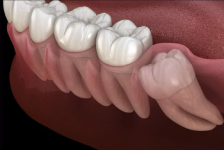
Wisdom Tooth Removal - Wisdom teeth often don't have enough space to come through properly and may become impacted. When this happens, it can cause pain, swelling, or infection. Removing them can prevent damage to nearby teeth and relieve discomfort.

Dental Implants - A dental implant is a titanium post that is placed into the jawbone to act as an artificial root. A crown is then attached to create a permanent replacement for a missing tooth. Implants are a long-term solution that look and function like natural teeth.
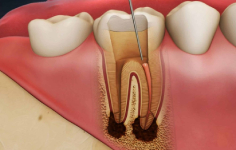
Root Canal Surgery - Also known as apicoectomy, this type of surgery is necessary when a root canal treatment is insufficient to eliminate the infection. The end of the tooth root is surgically removed, and the area is sealed to prevent further issues.
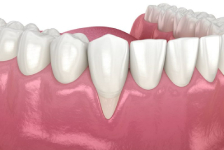
Gum Surgery - If gum disease has damaged the tissues around the teeth, surgery may be necessary. Procedures such as flap surgery or grafting help clean deep pockets and restore gum tissue to prevent tooth loss.
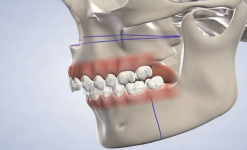
Jaw Surgery - Jaw or orthognathic surgery is used to correct bone irregularities, such as a misaligned bite or congenital jaw issues. It can improve chewing, speech, and facial balance and may also be part of treatment for sleep disorders.

Biopsies and Lesion Removal - If there is a suspicious lump or sore in the mouth that doesn't heal, a small piece may be removed for testing. This helps identify conditions like oral cancer early when they are more easily treated.
When is Dental Surgery Needed

Dental surgery is typically recommended when simpler treatments are insufficient to resolve the issue. There are many situations where it may be the best or only option to protect your oral health and prevent complications.
- Severe Tooth Decay or Damage - If a tooth is broken, cracked, or too decayed for a filling or crown to repair, removal may be the only choice. Trying to save a tooth that is no longer stable can lead to infection or pain.
- Infections - Untreated tooth infections can spread to the bone or other areas of the body. In cases where medication and standard treatment are ineffective, surgery may be necessary to drain the infection and remove the affected tissue.
- Impacted Teeth - These are teeth that don't erupt properly and remain trapped in the gum or bone. They can push other teeth out of position, cause cysts, or damage nerves. Surgical removal helps prevent these problems.
- Tooth Loss - When one or more teeth are missing, it affects your ability to chew and speak properly. It can also lead to bone loss in the jaw over time. Dental implants and other surgical options restore the structure and prevent further damage.
- Gum Disease - Advanced periodontitis can cause gums to recede and bones to deteriorate. Surgery is often required to remove bacteria, close deep pockets, and repair the tissue surrounding the teeth.
- Jaw or Bite Problems - If the upper and lower jaws don't line up properly, it can lead to pain, difficulty eating, or long-term damage to the teeth and joints. Corrective jaw surgery can realign the bite and improve the quality of life.
What to Expect Before, During, and After
Knowing what will happen before, during, and after your dental surgery can help you feel more relaxed and in control. Here's what the process generally involves:
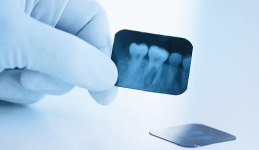
Before the Surgery
The first step is a comprehensive dental examination, which may include X-rays or 3D scans. The dentist or specialist will explain to you why the surgery is necessary, what is involved, and how you best prepare for it. Do not withhold any details about your medical history record of any condition you have or medications you take with you to ensure your safety.
Once sedation or general anaesthesia is planned for your procedure, your surgeon or dentist will give you instructions regarding eating or drinking for a specified number of hours before your intervention. You will probably have instructions to cease taking specific medications, and you may have to arrange for someone to take you home afterward.
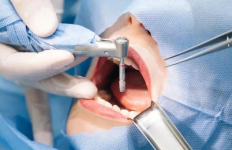
During the Surgery
The type of anesthetic used varies depending on the procedure and the patient's comfort level. For minor surgeries, local anesthesia keeps the area numb, allowing for a more comfortable experience. More involved or longer procedures would call for sedation or general anesthesia so you can either relax or drift off to sleep.
The surgeon will use sterile instruments and exacting methods for the procedure. There will be no pain; however, you may hear some sounds or feel pressure. Most surgeries are completed within an hour; however, some procedures may take longer.

After the Surgery
Once the surgery is complete, you'll be monitored until the effects of anaesthesia wear off. Some discomfort, swelling, or bleeding is normal in the first few hours or days. Your dentist will provide you with aftercare instructions, which typically include rest, taking prescribed medication, and eating soft foods.
Proper healing can take anywhere from a few days to several weeks, depending on the procedure. You may be asked to avoid physical activity, alcohol, smoking, or certain foods. Follow-up appointments will be scheduled to check progress and remove stitches if needed.
If you experience severe pain, prolonged bleeding, or signs of infection (such as fever or pus), you should contact your dentist straight away.
Risks and Considerations

While dental surgery is generally safe, all medical procedures carry some risk. Being aware of the potential issues can help you prepare and respond appropriately.
- Infection - Bacteria can enter the surgical site, especially if post-operative care isn't followed properly. Antibiotics may be prescribed to reduce the risk, and maintaining good hygiene is essential during the healing process.
- Bleeding - It's normal to have light bleeding after surgery, but heavy or persistent bleeding should be reported to your dentist. Avoiding physical strain and keeping your head elevated can help reduce this risk.
- Swelling and Bruising - These are common side effects, particularly after tooth extraction or jaw surgery. Applying ice packs in the first 24 hours and following the recovery plan can help manage these symptoms.
- Nerve Damage - In rare cases, surgery near nerves can lead to temporary or permanent numbness or tingling in the tongue, lips, or face. Your dental surgeon will assess the risk beforehand.
- Dry Socket - This occurs when a blood clot fails to form or becomes dislodged from the site of a tooth extraction. It exposes the bone and nerves, leading to severe pain. A dry socket requires immediate treatment from your dentist.
- Anaesthetic Complications - Reactions to local or general anaesthetic are rare but possible. These may include dizziness, nausea, or allergic responses. Be sure to discuss any past reactions with your dentist before the procedure.
Cost and Insurance

The cost of dental surgery varies widely based on the type of procedure, location, and the clinic's pricing structure. Factors such as sedation, imaging tests, and follow-up care can also affect the overall price.
- Basic Procedures - Tooth extractions and minor gum treatments are usually the least expensive. These may cost anywhere from a few hundred to several hundred local currency units, depending on the region.
- Complex Surgeries - Treatments like dental implants, jaw realignment, or bone grafts are more costly. These procedures may require multiple visits, custom parts, and specialist care, making them significantly more expensive.
- Insurance Coverage - Whether dental surgery is covered by insurance depends on your provider and the specific policy. Some plans may cover only essential procedures, while others include more comprehensive care. It's essential to verify if pre-approval is required and whether you'll need to pay upfront with the expectation of claiming reimbursement later.
- Financing Options - Many clinics offer payment plans or financing options that allow patients to spread out the cost over time. These can make dental surgery more accessible for those without insurance or with limited budgets.
Choosing the Right Dental Surgeon

Picking the right dental professional is one of the most important steps in ensuring successful treatment. A skilled and experienced surgeon can reduce risks and make the experience much smoother.
- Credentials - Make sure your dental surgeon is licensed and trained in the specific procedure you require. Ask about their qualifications, certifications, and experience.
- Specialisation - For complex procedures, such as dental implants or jaw surgery, you may need to see a specialist like an oral surgeon, periodontist, or endodontist.
- Experience and Reviews - Don't hesitate to ask how many times the dentist has performed the procedure you're having. Online reviews and testimonials can also provide insight into the experiences of other patients.
- Communication - Choose a surgeon who explains the process clearly, answers your questions, and listens to your concerns. Effective communication builds trust and helps you feel more at ease.
- Clinic Standards - If possible, try to visit the dental practice in advance. It should be clean, well-organised, and fully equipped. The staff should follow strict hygiene protocols and be prepared to support you at every stage of your treatment.
Final Thoughts
Surgical procedures in dentistry enable individuals to alleviate pain, repair damage, and regain confidence in their smile. Although surgery frightens many people, the fear eases when one understands what to expect and why they might be undergoing surgery.
Always educate yourself on your options, ask questions, and carefully follow your dentist's advice. When prepared properly before and after dental surgery, the procedure should be very straightforward, and the patient should enjoy long-term improvements in health and quality of life afterward.
